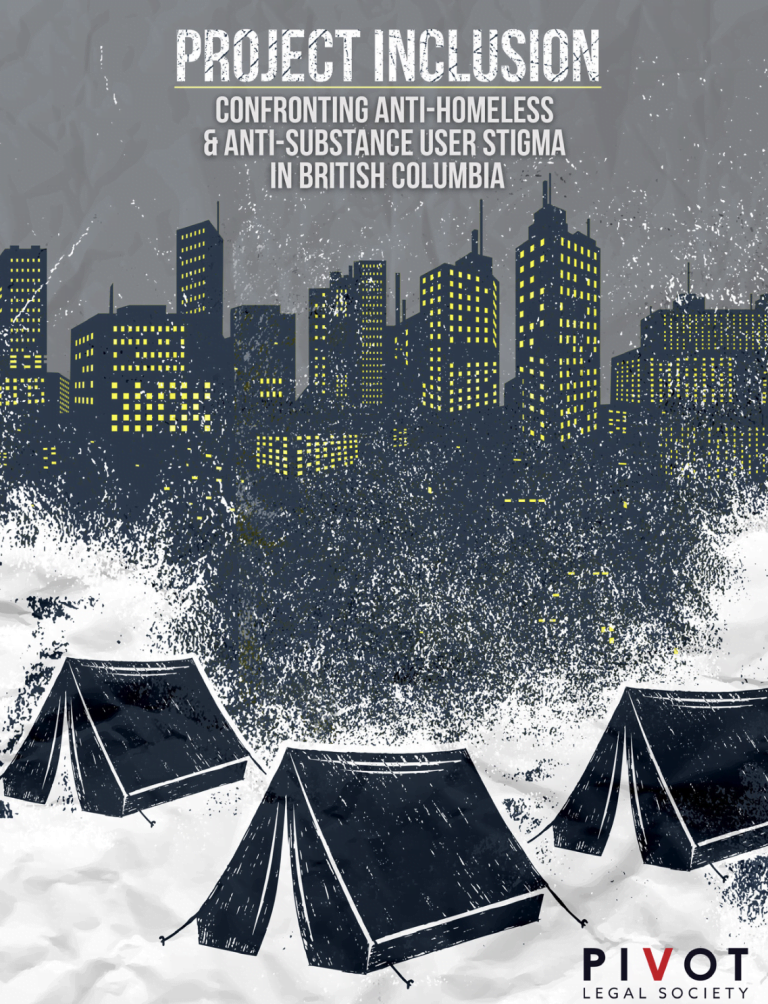5 search results
for
Municipal governments
How court-imposed conditions set people up to fail
Relevant policing stakeholders must update database systems, e.g. PRIME-BC, to:
Recommendation 21: Require that all police-imposed conditions are electronically registered, including:- the date of imposition;
- the date or causal mechanism by which the condition will expire;
- the specific content of the condition; and
- the underlying reason for imposing the condition.
-
Category and theme:
Audience:
Groups affected:
Location of recommendation:
How court-imposed conditions set people up to fail
Relevant policing stakeholders must update database systems, e.g. PRIME-BC, to:
Recommendation 22: Ensure that PRIME-BC can be searched to track all police-imposed conditions in the aggregate, rather than only being tied to an individual’s file.-
Category and theme:
Audience:
Groups affected:
Location of recommendation:
Service gaps and barriers
Recommendation 30: The Ministry of Housing and Municipal Affairs must immediately improve the number and accessibility of shelter options to ensure that everyone in BC always has access to a physical location where they can sleep, store belongings, and attend to personal care and hygiene in safety and without threat of displacement or sanctions. To do so they must:- work in partnership with BC Housing to reinstate nightly turn-away counts at shelters and use data to ensure that there are adequate shelter beds to address the level of need in each municipality;
- with the exception of temporary Extreme Weather Response shelters, recognize that overnight-only shelters are untenable for residents and provide funding to expand shelter hours; and
- provide shelter residents an accessible and independent complaint process.
-
Category and theme:
Audience:
Groups affected:
Location of recommendation:
Service gaps and barriers
Recommendation 31: All government actors and health care providers must recognize the specific and indispensable expertise of people with lived experience. Increase peer-run and peer-delivered services and peer-support positions within government services by:- developing a provincial advisory board of people with lived experience of homelessness for BC Housing;
- establishing provincial best practices for engaging people with lived experience of poverty, homelessness, and substance use in service delivery modelled on GIPA (Greater Involvement of People living with HIV/AIDS), MIPA (Meaningful Involvement of People Living with HIV), and NAUWU (Nothing About Us Without Us) principles;
- collaborating with peer-led organizations to audit all provincial services (hospital, health, income assistance, shelter, housing) to identify and fund opportunities for peer engagement in service provision and planning; and
- developing a model for peer-involvement in the design and execution of homeless counts.
-
Category and theme:
Audience:
Groups affected:
Location of recommendation:
Operationalizing stigma-auditing
Recommendation 33: The relevant provincial ministries should engage in extensive education and outreach to legislators and staff across the provincial government, and local governments to introduce the stigma-auditing tool to law and policymakers, and to train stigma auditors.-
Category and theme:
Groups affected:
Location of recommendation:
